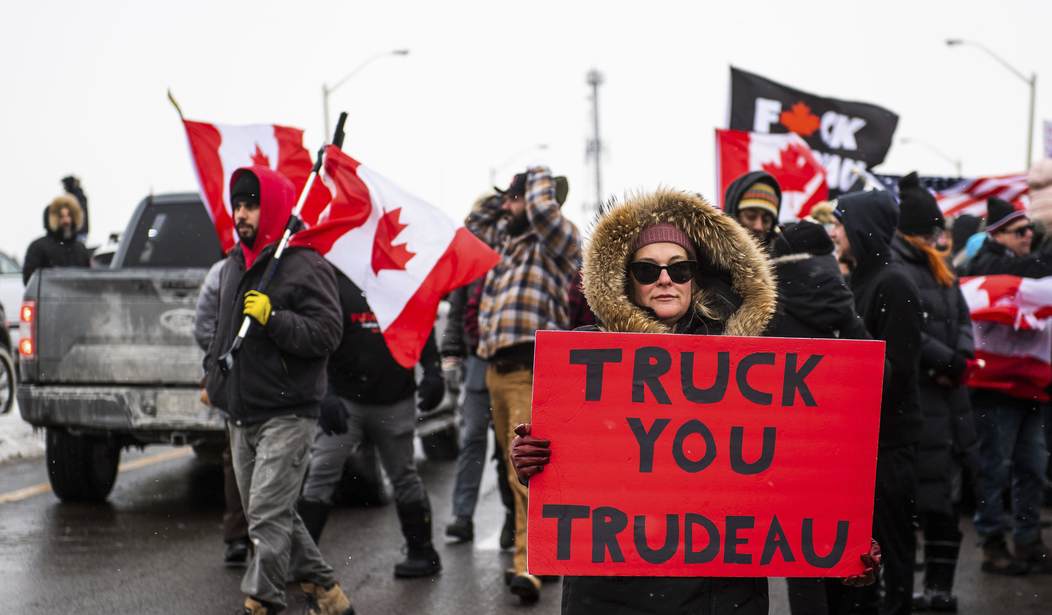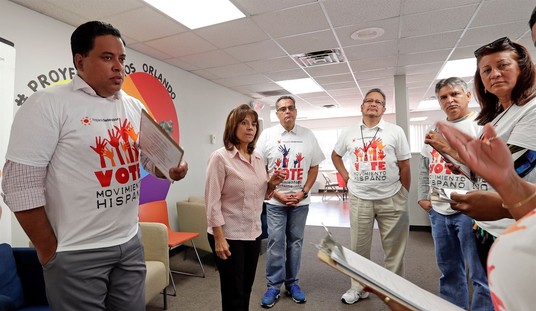There is an interesting thing happening in Canada right now – a public inquiry into how the Trudeau government used their emergency powers to thwart the trucker convoy protest. The question is, “Did the Canadian government have the right to use emergency powers to break up the trucker convoy protests and arrest private citizens exercising their free expression?”
Comrade Prime Minister Trudeau has maintained that his government believed the trucker convoy to be a terroristic threat. This is how he has justified seizure of financial assets, arrests, and threats to convoy participants to take their children in protective custody. It seems to all boil down to how we define “protests.” After all, in the West, we greatly value the right to protest as a vital part of functioning democracy. It gets annoying, depending which side of the fence you’re on at what time, but our votes are not the only way we communicate our displeasure with the direction our nation may be taking. Sometimes protests are a way to persuade voters, sometimes they are a way to force our governments to bend to our will legally, sometimes they are just a way for angry people to be heard.
Unfortunately, Trudeau’s definition of acceptable protests is a bit anemic, to say the least. When questioned about the justification for the use of emergency powers on protesters, the son of one of the most famous politicians in the world (Pierre Trudeau or Fidel Castro, take your pick) had an interesting take on the purpose of protests.
“I think that we have a robust, functioning democracy, and public protests are an important part of making sure we’re getting messages out there…but using protests to demand changes to public policy is something that I think is worrisome.”
Trudeau: “I think that we have a robust, functioning democracy, and public protests are an important part of making sure we’re getting messages out there … but using protests to demand changes to public policy is something that I think is worrisome”
— The Post Millennial (@TPostMillennial) November 25, 2022
What is “worrisome” is the leader of a supposedly free Western nation saying that protesting against public policy is worrisome.
Martin Luther King, Jr. and the entirety of the Civil Rights movement in America would like a word, Mr. Trudeau.
This is the same argument we hear from the anti-free speech crowd. “We support free speech, but that doesn’t mean you have the right to say whatever you want.”
Actually, it does. Obviously that doesn’t protect you from the consequences of your speech. You have every right to call my son the n-word, but you have no right not to expect me to kick you right in the babymaker if you do. Speech we like doesn’t need to be protected. It requires no effort, no concern, no courage to allow someone to publicly utter all the things you agree with. If free speech provisions (and it should be pointed out here that in Canada, they do not have “free speech” but “free expression,” which is a bit different than our First Amendment right) don’t protect unsavory speech, they protect no speech at all. After all, what is “unsavory” can often be a matter of subjective opinion. We need the absolute right to free speech to protect us from the ever-changing opinions of our fellow-citizens (and ourselves).
Likewise, if protests are really only for shouting about the things we like, can they even be called protests? That seems to be Trudeau’s opinion. I’m trying to imagine what a protest about things we like would look like? Would you even “protest” for something that is already being done by the powers that be? Protests don’t necessarily have to be angry – many Tea Party protests were notoriously milquetoast, and sometimes protests are more akin to advocating for an event, like securing the Olympics in your nation. There are plenty of reasons to protest, but not one is because people are just so thrilled with a policy or lack thereof that they just want their government to know how happy they are.
It was a ridiculous definition from a ridiculous Prime Minister. If my grandparents’ generation had held to this definition, I would not be a free, prosperous American writing for RedState this very day.
Of course, we all know it’s just a pale excuse. Trudeau knows that he has no love for “democracy” and believes the government should be the final authority in the lives of his citizens. His supporters know he believes that and they support him because they believe it too.
The fate of a nation that used to be counted as one of the greatest in the West now hangs on the question of whether or not the majority of Canadians also believe this. As a former Canadian, now proud American, it is my suspicion that freedom does not hold the majority position in The Great White North any longer.
That is sad indeed.













